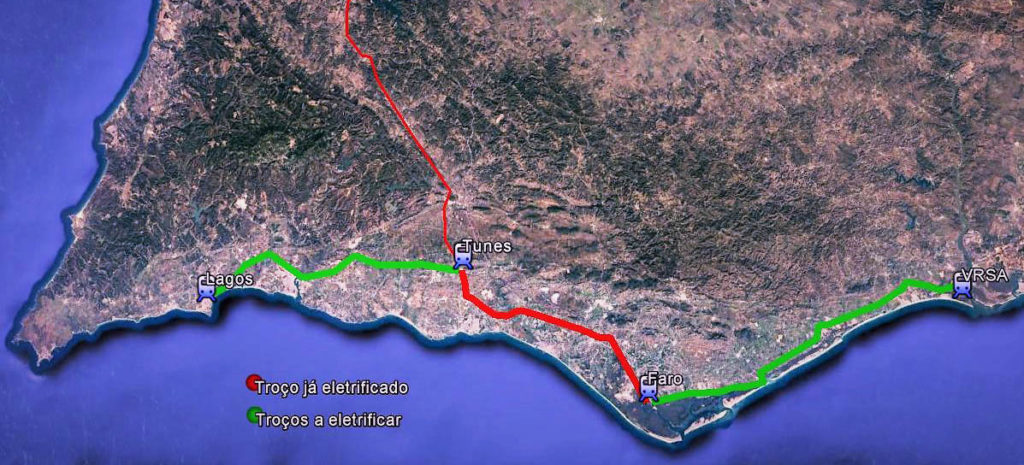 Electrification of the Tunes/Lagos and Faro/Vila Real de Santo António will cost 32 million euros and the process will start this January. The announcement was made this morning, at the Portimão train station, by the minister of Planning and Infrastructure Pedro Marques.
Electrification of the Tunes/Lagos and Faro/Vila Real de Santo António will cost 32 million euros and the process will start this January. The announcement was made this morning, at the Portimão train station, by the minister of Planning and Infrastructure Pedro Marques.
The official revealed that, "next week", tenders will be launched for the project for the execution of the works in the two sections, as well as for the Environmental Impact Studies.
According to the schedule presented by Carlos Fernandes, Vice President of Infrastructures of Portugal (IP), the launch of the necessary works will take place during the 3rd quarter of 2018, so that the Algarve Line is electrified and operating in the 4th quarter of 2020. And this date of completion of the work, stressed the minister, anticipates "by about a year" what was previously planned. “We are going to move faster, to have the work completed in 2020”, stressed Pedro Marques.
The electrification work on the Algarve Line will also require the construction of a new traction substation, to feed the 56-kilometer stretch between Faro and Vila Real de Santo António. IP's vice-president added that the company is "in negotiations with REN and EDP, to see which one offers the best conditions", so the necessary investment has not yet been fully quantified. As for the Tunes/Faro, it will only be necessary to make an "extension" of the existing substation.
What will not happen will be changes to the current layout of the Algarve Line which, in many places, passes far from the main urban centers. There, the minister Pedro Marques challenged, what will have to be done and thought about, together with companies in the sector and municipalities, is to "strengthen the intermodal links between railroad and highway."
Recalling the long process of the project to electrify the Algarve Line, the government official said that it was "just like a blinker, some days it lit, others not." The truth is that, despite being part of plans, "before we got into the matter there weren't even any projects" for this investment, he guaranteed.
«It was the orientation of this Government that the electrification of the Algarve Line was to be financed by this community framework», added Pedro Marques.
The minister also launched a challenge to the Intermunicipal Community of the Algarve and the Regional Coordination and Development Commission: «when this cycle of investment in electrification is completed, we will have to think about the work of railway connection to the Airport of Faro». A challenge that Pedro Marques had already revealed first hand to Sul Informação, this week, and that, as he then underlined, involves a work that can only advance "if it is possible from an environmental point of view", due to the possible "impact on the Ria Formosa".
Isilda Gomes, mayor of Portimão, affirmed her “great joy, great hope” with the beginning of the process of electrification works on the Algarve Line.
Taking into account «the contribution of the Algarve to the national GDP, which is substantial and substantial, our region deserves very special attention from the Government», he defended.
Referring to the growth of tourism in 2016, Isilda Gomes warned: «we have been successful, but nothing guarantees that, if investments are not made, we will continue to have that success». And such investments, he stressed, will have to be made in safety, health, but above all in mobility, which he considered "fundamental".
The fact is that, underlined the mayor, "getting to Tunis and taking the train to this area is an experience that is not forgotten so quickly, but in the negative". Currently, he added, "we have a train, but we don't."
Therefore, the mayor of Portimão vowed that, in 2020, «we are all here with little flags in hand, greeting the electric trains that will pass through here».
Joaquina Matos, mayor of Lagos, who had already defended that the section does not end in Lagos, but rather starts there, stressed, making a note of taking note: "in the 4th quarter of 2020!". This is the date announced for the end of the works and the Algarve, like the mayor of Lagos, have already taken note.
Numbers:
Tunes/Lakes section: 46 km | 14 millions of euros
Change Faro/VRSA: 56 km | 18 millions of euros
New SST + Existing SST Expansion - cost under evaluation
Other works Signaling and Telecommunications - 1,6 millions of euros
Calendar of works:
January 2017 – Launch of tenders for electrification projects and their Environmental Impact Studies
3rd Quarter 2017 – Launch of the tender for the contract for the design/implementation of the new SST Substation and expansion of the SST in Tunis
3st Quarter of 2018 – Launch of tenders for Electrification contracts
4st Quarter of 2020 – Completion of the Electrification Contracts
Photos: Elisabete Rodrigues|Sul Informação


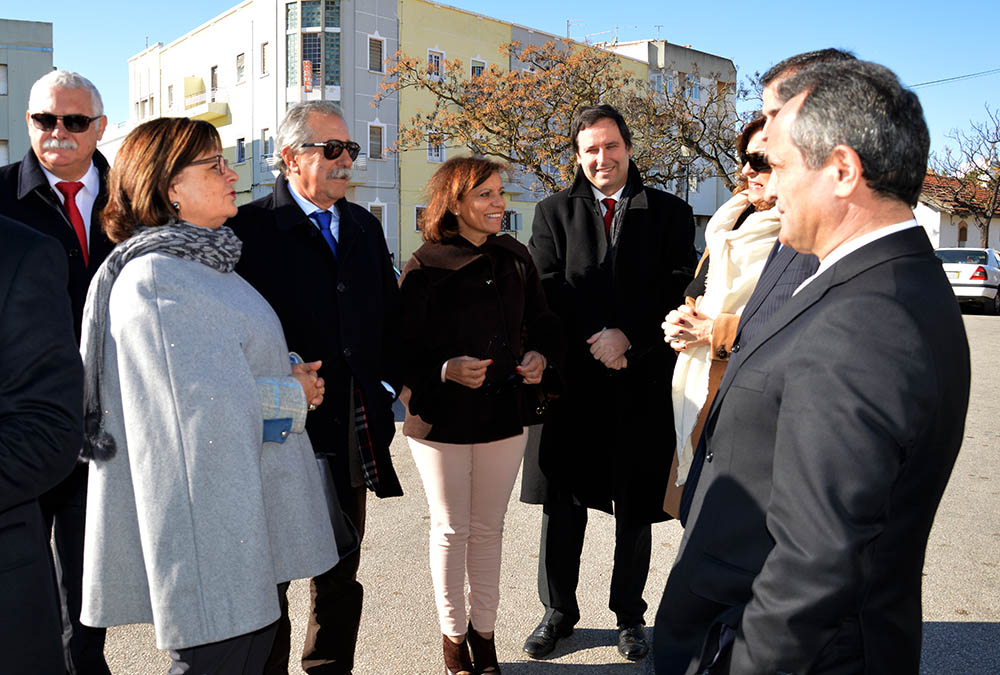

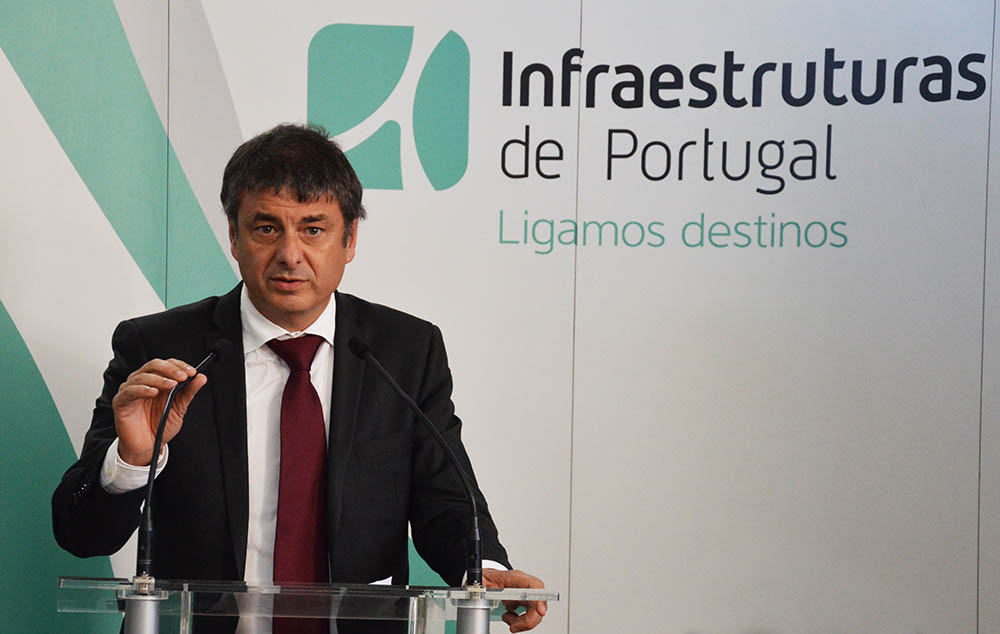
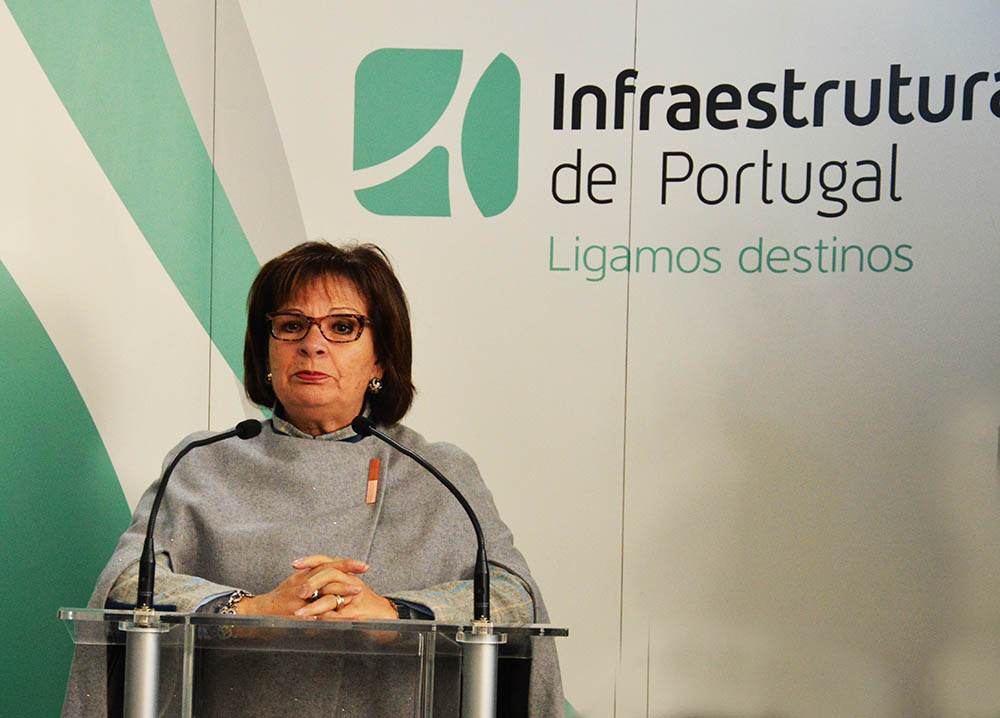
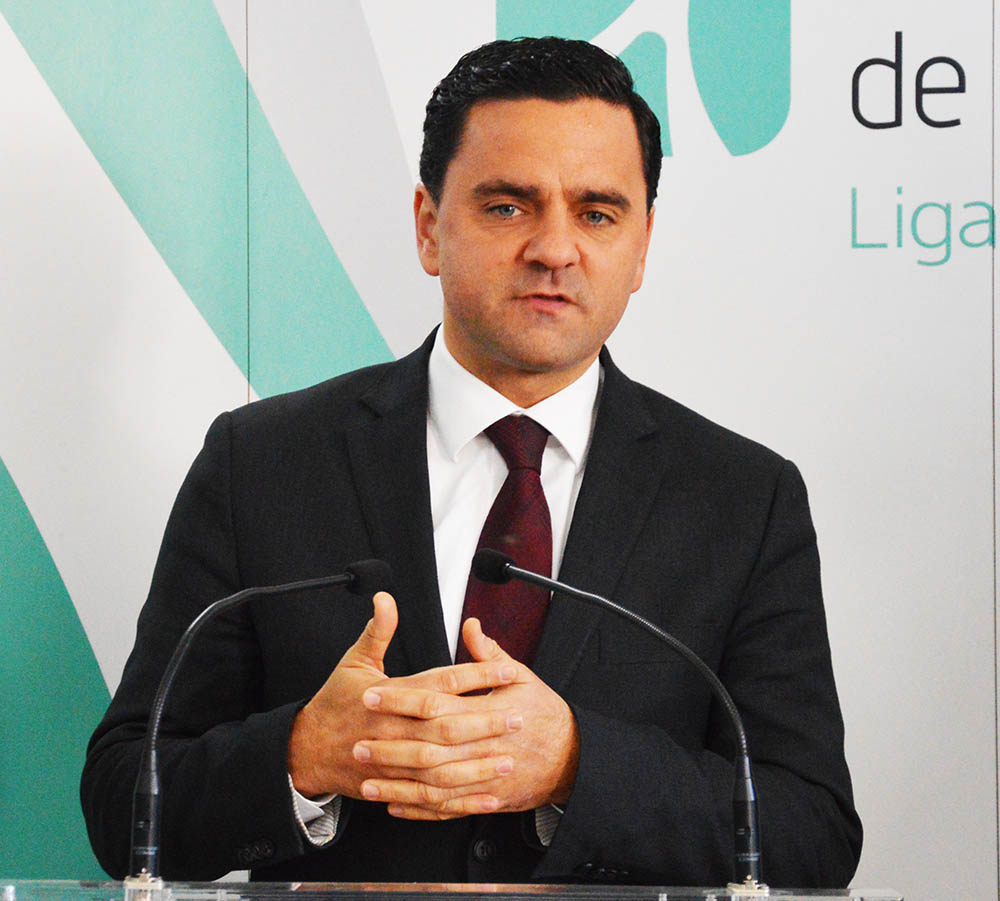


















Comments